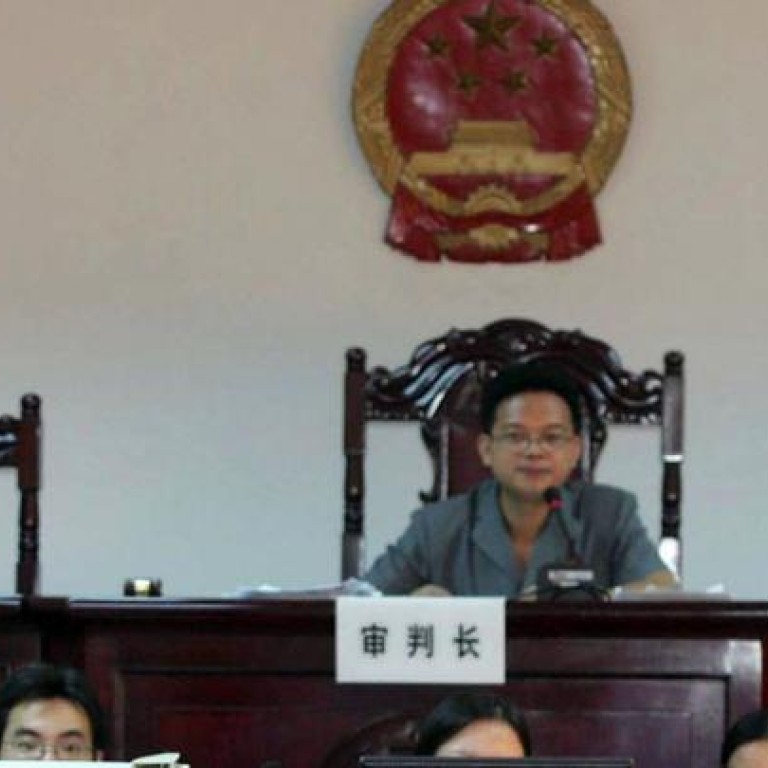
Experts say judicial independence would lead to political reform
Report says judicial independence can be the first step towards political reform and should not be considered unique to capitalist countries
Mainland legal experts are calling on the new Communist Party leaders to implement reforms for judicial independence, saying it would be the first step towards political reform in the country.
An annual report on judiciary reform, co-authored by three legal experts from the Beijing Institute of Technology and released at a legal forum organised by yesterday, said it should be the top priority in the political reform process, as it would be the easiest related area to reach a consensus.
The report also argues that an independent judiciary should not be seen as a concept unique to capitalist countries, and a socialist country such as China should have an independent judiciary too. Many mainland pundits have long criticised the party for having overriding power over the court system.
"Many socialist countries have also endorsed the principle of judiciary independence," the report says. "Judiciary independence is not an issue of being capitalist or socialist, and socialism should not exclude judiciary independence."
Conceding that achieving an independent judiciary should be a gradual process, the report said authorities should at least make it a target for reform. The experts said this could start simply, by banning high-level courts from intervening in lower court rulings, and by banning a presiding judge from intervening in case examinations by other judges.
Legal expert Jiang Ping , a former president of the China University of Political Science and Law, said at the forum that the nation's judicial reform should not be a watered down version full of "Chinese characteristics", it should be on par with international standards.
"The soul of judiciary reform should be judicial independence," he said.
The report also said that some parts of the revised Criminal Procedure Law were actually examples of backtracking, in terms of legal reform.
For example, the revision gave law enforcement agencies greater power by allowing them to detain people for up to six months if they are suspected of being involved in national security breaches.
Professor Zhang Qianfan , who teaches law at Peking University, said: "We can't talk about judicial independence if the party's political and legal affairs committees still have the power to overrule the proceedings of individual courts."
Zhang drafted a petition on Christmas day calling for authorities to uphold the constitution. It warned that public dissatisfaction would otherwise escalate to a "critical point" and the country would "fall into the turmoil and chaos of violent revolution".
Hopes for reform in China have risen recently. New security tsar Meng Jianzhu said at a national law-and-order conference this month that the government would proceed with reforms this year.
Xi Jinping has promised to strengthen the mainland's legal system since his appointment as the party's general secretary, saying the government should improve the credibility of legal affairs.
